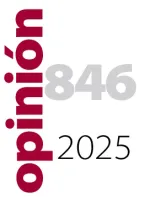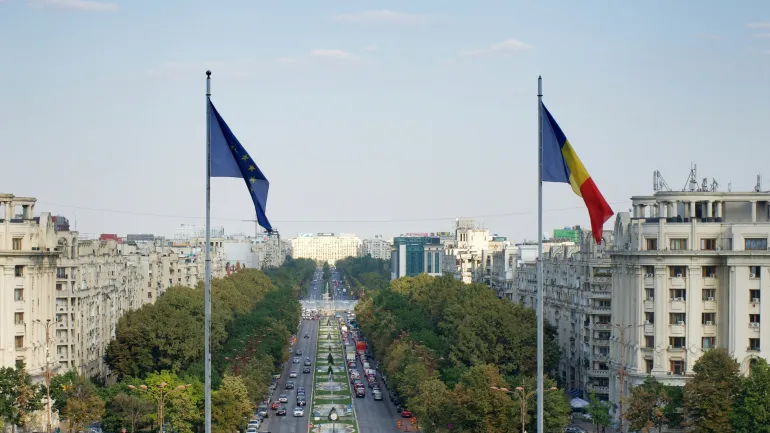Beyond Militant Democracy as an Answer to Populism: the case of Romania


Populist authoritarianism in Eastern Europe, exemplified by Romania, thrives where citizens face economic insecurity, social dislocation, and political marginalization. While militant democracy—legal restrictions on actors who subvert democratic norms—can curb far-right extremes, it cannot address the deeper social and economic vulnerabilities driving populist appeal. Romania’s post-1989 ultraliberal reforms and technocratic austerity, including those of the new government, have intensified precarity, fuelling far-right support domestically and in the diaspora.
Populist authoritarianism poses an existential challenge to democracy that extends far beyond the narrow confines of electoral politics. It is not merely a threat to formal institutions; it seeks to transform democracy from within, replacing it with new forms of autocratic rule. It flourishes where citizens experience existential insecurity, social dislocation, and a profound sense of political marginalization. Across Eastern Europe’s peripheries—where economic reforms have often been rapid, externally directed, and socially disruptive—the conditions for populist resurgence are particularly acute. Positioned between the West and Russia, Romania exemplifies these dynamics.
Following the fall of communism, Romania underwent a gradual shift toward an ultraliberal economic model, accelerated by integration into the European single market, but without the safeguards that were often in place in Western democracies. As Cornel Ban has documented, the country’s post-1989 economic reforms—characterized by rapid liberalization, privatization, and fiscal discipline—were often more extreme than those in Western Europe, producing profound social suffering and dislocations. The result has been widespread existential insecurity, marked not only by economic precarity, but also by a pervasive sense of uprootedness and meaninglessness in everyday life.
This insecurity is not confined to Romania’s domestic population. It extends to its massive diaspora, estimated at 6 million people, whose members have faced economic precarity as well as marginalization, racism, and cultural-political exclusion in their host countries. While historically liberal, these painful experiences—coupled with neglect by the Romanian elite—have fuelled the diaspora’s growing support for far-right movements. Since 2020, three new extreme-right parties—the Alliance for the Union of Romanians (AUR), SOS Romania (SOS), and the Party of Young People (POT)—have entered the Romanian Parliament, challenging the post-communist political elite in unprecedented ways and signalling a deeper malaise at the heart of representative democracy. Ironically, some of these parties, often leaning toward Russia, have recently benefited from the support of the Romanian diaspora living in Western Europe.
Romanian Presidential Elections and Militant Democracy
Among the far-right figures, the most popular is the charismatic and unaffiliated Călin Georgescu, who unexpectedly won the first round of the 2024-2025 presidential elections. In the lead-up to these elections, the principle of militant democracy—whereby states may restrict actors who openly seek to subvert democratic norms—was invoked with unprecedented visibility, culminating in the Constitutional Court’s abrupt cancellation of the second round. Georgescu was disqualified on the grounds of alleged electoral irregularities, campaign finance violations, and suspected Russian interference. Similarly, SOS’s leader, Diana Șoșoacă had previously been barred for her anti-EU, pro-Russian, and antisemitic statements deemed incompatible with constitutional values.
These legally contentious interventions reveal the tensions inherent in departing from legality to protect the constitutional state from the rise of populist extremes, both for principled reasons —since due process was arguably compromised—but also for pragmatic considerations. On one hand, as Bogdan Iancu argues, such bans defend the formal structures of democracy. On the other hand, they risk alienating significant segments of the electorate, reinforcing narratives of systemic illegitimacy, and intensifying distrust. Militant democracy may safeguard procedural norms, but it cannot address the deeper social dislocations that drive populist appeal, dislocations that make democracy feel abstract and disconnected from everyday life.
The 2025 elections themselves demonstrated the complex interplay between fear, hope, and civic engagement. George Simion, leader of the far-right AUR, was widely projected to win. Yet, urban voter mobilization—especially in Bucharest, Cluj, and Timișoara—reversed the polls, delivering Nicușor Dan a narrow victory. Media narratives celebrated Dan as a model technocrat, emphasizing his soft-spoken competence and institutional focus. However, this portrayal obscures the social realities driving electoral behaviour: many citizens voted not out of enthusiasm for Dan but out of fear of Simion’s populist unpredictability and extreme views. Simion’s own missteps—including overpromising massive public sector layoffs, alienating diaspora voters by supporting the U.S. reintroduction of visas for Romanians, and acknowledging that his affordable housing program was largely a marketing stunt—contributed to his electoral defeat.
The Politics of Austerity Reloaded
Dan’s presidency, backed by a coalition of Liberals (PNL) and Social Democrats (PSD) under Prime Minister Ilie Bolojan, quickly revealed the limits of technocratic centrism. Confronted with a 9.3% budget deficit in 2024—the EU’s highest—the administration implemented sweeping austerity measures: spending freezes, VAT and excise hikes, frozen wages and pensions, cuts to special pensions, and reforms of state-owned enterprises. Student scholarships were curtailed, rural schools closed or merged, and social programs trimmed. While these policies satisfied EU creditors and some were arguably necessary, they disproportionately burdened low-income, rural, and young populations, reinforcing the perception that the government prioritized efficiency over lived well-being.
Dan’s ideological posture—technocratic and right-leaning—further accentuates this detachment. Bolojan’s commitment to fiscal discipline and privatization reinforced the impression that the government prioritized retrenchment over meaningful social reform. While it is too early for a comprehensive evaluation, by adopting a moralizing discourse that blames the deficit and the rise of the far right on the corrosive effects of widespread corruption in the public sector, the new administration obscures the link between threats to democracy and the erosion of the welfare state—perpetrated by both centre-left and centre-right governments over the past two decades. Far from neutralizing populist sentiment, the new austerity measures invigorated it: mid-2025 polls showed AUR support climbing to 40.5%, and nostalgia for Nicolae Ceaușescu reached unprecedented levels, reflecting a longing for social protection amid existential uncertainty.
Democracy as a Social Project
Romania’s deeper democratic crisis is thus not procedural but social. A substantive understanding of democracy must go beyond formalistic procedures—elections, the rule of law, and anti-corruption campaigns—to encompass the lived realities of citizens. Democracy is not merely a set of rules to be enforced; it is a comprehensive social project that should ensure dignity, fairness, existential security, and hope. The post-1989 liberal myth that market liberalization alone delivers prosperity has proven hollow for many, producing marginalization, economic precarity, unaffordable housing, and weakened social protections, particularly for those living in small cities and rural areas. Without addressing these material and social cleavages, in addition to finding renewed strategies to counteract the long-term Russian interference in society through the new media, the Romanian democracy risks being perceived as an empty form, incapable of meeting the needs of those it purports to serve.
The mechanisms of militant democracy can be useful if they are applied not only within legal frameworks and sparingly, but also if they are complemented by substantive democratic reforms. The antidote to populist authoritarianism lies not in restrictive legal measures or technocratic austerity but in reconstructing democracy as a lived social reality—one that addresses both its material foundations and the need for new narrative frameworks to engage alienated citizens. This requires robust investment in affordable housing, public services, cost-of-living relief, and economic security, ensuring that citizens do not merely participate in elections but experience democracy as tangible in their daily lives. Constructive policies targeting the diaspora are essential to counter its recent support for the far right. Reframing democracy as a social project—anchored in material well-being, dignity, community-building, and fairness—is crucial to resisting the existential threats posed by populist authoritarianism at Europe’s periphery and the cross-pressures of Putin’s Russia.
John Dewey’s insight is particularly relevant: “Democracy is more than a form of government; it is primarily a mode of associated living, of conjoint communicated experience.” In other words, democracy must extend beyond the ballot box and the courtroom into neighbourhoods, schools, workplaces, and public spaces where citizens live and interact forming viable communities and democratic “habits of the heart”—to reference Alexis de Tocqueville. It requires policies that create tangible improvements in quality of life and foster a sense of collective purpose. When citizens experience democracy as an active, participatory, and socially meaningful way of living—when they see that their communities are safe, their children educated, and their livelihoods secure—the appeal of populist authoritarianism diminishes. Conversely, when democracy is reduced to abstract procedures divorced from social reality and serves as a façade for deep socio-economic inequalities, it risks alienating precisely those populations whose engagement is essential for its survival.
At Europe’s periphery, where the scars of rapid economic liberalization and post-communist transition remain fresh and the influence of Russia is growing—amplified by AI tools and new media—the challenge is not merely to defend institutions but to reanimate the social promise of democracy itself, ensuring a good life for all.
Keywords: militant democracy, populism, populist authoritarianism, Romania, Eastern Europe, Russia, Georgescu
E-ISSN 2014-0843
All the publications express the opinions of their individual authors and do not necessarily reflect the views of CIDOB or its donors.